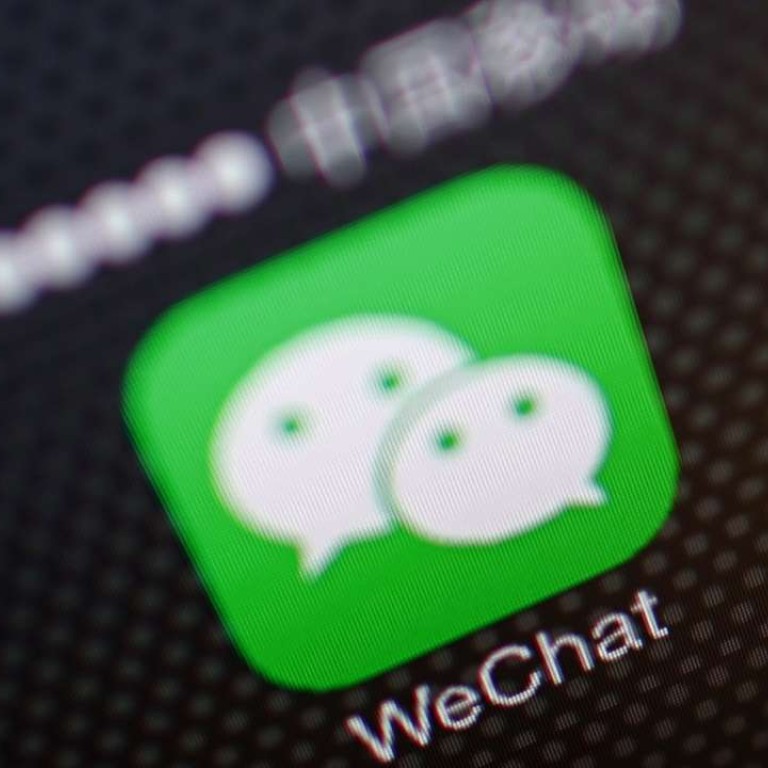
How to avoid getting your WeChat messages censored both in and outside China
Accounts registered with mainland-based numbers have keywords filtered or blocked anywhere in the world as long as they keep their user names
Users of the WeChat instant messaging platform can have their content censored even if they leave China or switch to an overseas phone number, according to a research group.
Accounts created outside the mainland, such as through carriers in Hong Kong or the US do not face the same restrictions, it said.
“The idea that you can’t escape a censorship system imposed on you at the time of registration is a troubling one,” said Jason Ng, a research fellow at the Citizen Lab.
The dual systems are crucial to understanding how Tencent Holdings can expand China’s most-popular message service overseas while still complying with domestic government controls on information.
With 846 million active users on WeChat, the company scrapes news posts deemed sensitive and blocks private texts containing certain words in both one-on-one and group chats, Citizen Lab’s research on Thursday showed.
Tencent said it complies with local laws and regulations in the countries where it operates.
“WeChat has and will always adhere to Tencent’s core mission to create value,” the company said in a statement on Thursday.


If those words are detected by WeChat servers in China, the message will not be sent.
More words are monitored in group chats than in one-to-one messages, most probably because of the capability to reach a larger number of users, the study showed.
Some words originally blacklisted were found accessible later and new ones are constantly added, the research found.
“In recent years, WeChat has faced increased regulatory pressures,” the report said. “This strict regulatory environment has led to suspicions that communications on WeChat may be monitored.”
Tencent also stopped notifying users if their messages were intercepted, making its operations less transparent, said Lotus Ruan, a researcher at Citizen Lab.
Texts sent from overseas users to a Chinese account simply would not appear on the receivers’ app.
Tencent is part of a growing number of companies succumbing to censorship to operate in jurisdictions like China.
Line Corp has also filtered keywords for Chinese users, according to a Citizen Lab report in 2014. Facebook is said to be developing a system to scrape content deemed inappropriate by Chinese regulators in order win access back to the market, The New York Times reported last week.

